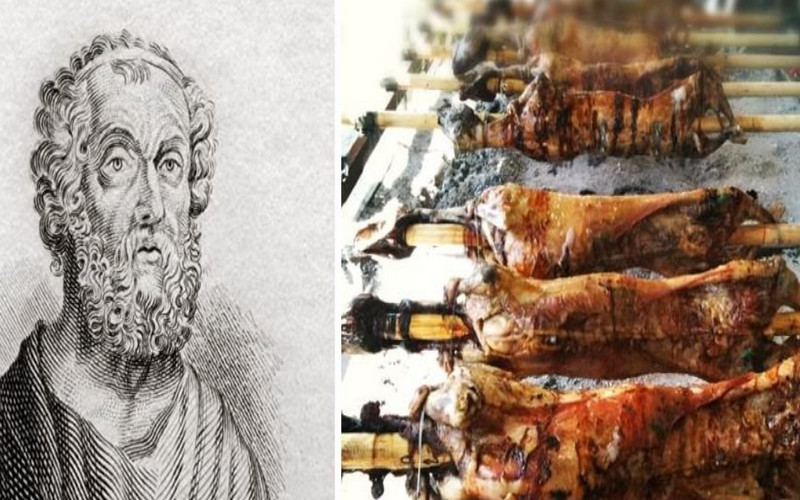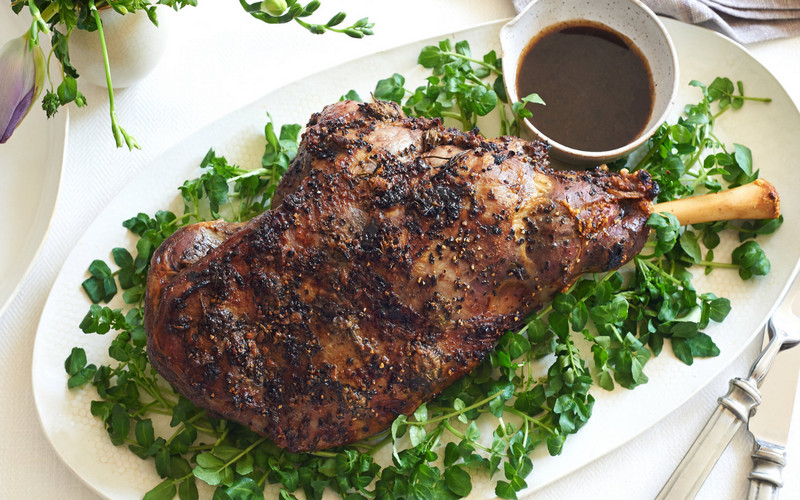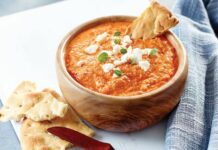In Greece, Easter is not just a religious holiday; it’s a cultural and culinary extravaganza that brings families and communities together. One of the most cherished traditions during Greek Easter is the roasting of a succulent lamb. This ancient practice has deep historical, religious, and social roots, making it a symbol of unity and renewal. In this article, we will delve into the reasons behind the Greek tradition of roasting lamb on Easter and explore the significance it holds in the hearts of the Greek people.
Symbolism of the Lamb
The tradition of roasting lamb on Easter is intrinsically tied to the symbolism of the lamb in Christianity. In the Christian faith, Jesus Christ is often referred to as the “Lamb of God,” symbolizing purity, sacrifice, and redemption. The act of roasting and consuming lamb on Easter Sunday serves as a powerful reminder of the sacrifice made by Christ on the cross for the redemption of humanity’s sins. It is a way for Greek Orthodox Christians to connect with the spiritual essence of the holiday.
Historical Origins
The tradition of roasting lamb during Easter dates back centuries and is believed to have its origins in both early Christian practices and ancient pagan rituals. Before Christianity became the predominant religion in Greece, the ancient Greeks celebrated the arrival of spring with a festival known as “Anthesteria.” During this festival, they would sacrifice animals, including lambs, to honor Dionysus, the god of wine and vegetation.
With the Christianization of Greece, many pagan customs were integrated into Christian celebrations. The roasting of lamb during Easter, a time when nature awakens from its winter slumber, became a symbol of both the resurrection of Christ and the arrival of spring. This blending of ancient and Christian traditions is a testament to the rich cultural tapestry of Greece.

Family and Community Bonding
Greek Easter is a time for families and communities to come together in joyous celebration. The preparation and roasting of the lamb often involve the whole family, reinforcing bonds and traditions that have been passed down through generations. The process of selecting the lamb, marinating it with herbs and spices, and slow-roasting it on a spit or in an oven is a labor of love that unites generations and fosters a sense of togetherness.
It’s common for extended families and neighbors to gather for a grand Easter feast, where the roasted lamb takes center stage on the dining table. This communal aspect of the tradition strengthens the sense of belonging and reinforces the importance of family ties in Greek culture.
Culinary Excellence
Greek cuisine is renowned for its delicious flavors, and the roasted Easter lamb is no exception. Greeks take great pride in the preparation of this dish, using a variety of herbs, garlic, olive oil, and lemon juice to marinate the meat. The lamb is often slow-cooked to perfection, resulting in tender, flavorful meat with a crispy, golden-brown skin.
The process of roasting lamb on a spit outdoors, a method known as “souvla,” is particularly popular in rural areas and adds an extra layer of flavor and authenticity to the dish. The aroma of the lamb roasting over an open flame is an unmistakable part of the Greek Easter experience.

Seasonal Ingredients
The timing of Greek Easter, which usually falls in late April or early May, aligns perfectly with the arrival of spring in Greece. This season brings an abundance of fresh herbs, vegetables, and fruits, which are incorporated into Easter meals alongside the roasted lamb. Dishes like Greek salad, tzatziki, and fresh greens are common accompaniments, enhancing the overall dining experience and celebrating the vibrant flavors of spring.

Religious Observance
Greek Easter is not just about feasting; it is also a time of deep religious reflection and devotion. The Holy Week leading up to Easter Sunday involves various church services and rituals, including the midnight Resurrection Service. After the solemn observance of Good Friday and Holy Saturday, the arrival of Easter Sunday is a moment of immense joy and celebration.
The act of breaking the fast with the first bite of roasted lamb on Easter Sunday holds profound religious significance. It symbolizes the end of the fasting period and the victory of life over death, mirroring the resurrection of Christ. The lamb, as the centerpiece of the Easter meal, embodies this victory and serves as a symbol of hope and renewal for the faithful.

The tradition of roasting lamb on Greek Easter is a beautiful amalgamation of history, religion, and culture. It symbolizes the sacrifice and resurrection of Jesus Christ, while also celebrating the arrival of spring and the unity of families and communities. The preparation and consumption of this delicious dish serve as a unifying thread that binds generations and reinforces the importance of faith, family, and tradition in Greek society.
As Greeks across the world gather to celebrate Easter with roasted lamb, they not only savor the culinary excellence of the dish but also partake in a centuries-old ritual that connects them to their rich cultural heritage and deep-rooted beliefs. This tradition is a testament to the enduring spirit of Greece and the enduring legacy of Easter.





